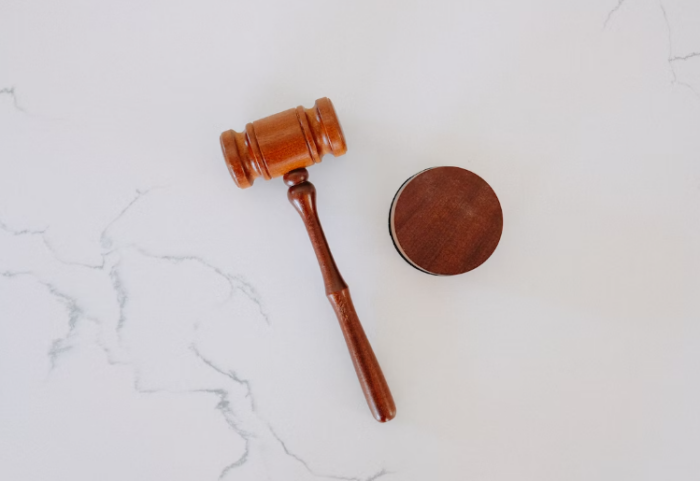13 Dec Defamation on Social Media in Australia


Social media is a must-have tool for connecting with customers, increasing brand recognition, and expanding business. However, it is also one of the most frequent locations where defamation can be found. A single damaging post, review, or comment has the power to not only your reputation severely which can be a business owner’s nightmare, especially those that are heavily relying on social media to promote their services.
Many keyboard warriors, as a matter of fact, do not realise that they can be held responsible for what they write online.
If you think that you or your business has suffered defamation on social media, or if you are doubtful whether something you posted could be considered defamatory, then this article is a perfect guide for you about the essentials you are required to know. We will explain defamation on social media, how to recognise it, and what actions you can take to safeguard yourself and your business according to Australian law.
Need help with a defamation on social media claim?
Contact Progressive Legal below for expert defamation advice.
REQUEST OUR ADVICEWhat is defamation on social media?
Defamation is the act of making false claims about a person or business that cause them to lose their good name and reputation. To defame in writing, speaking, or publishing in any form – these can be photos, videos, posts, comments, reviews, or articles.
It is social media defamation when defamatory material is posted online. It is the most harmful and dangerous kind of defamation, which refers to any defamatory content published on digital platforms, where it can spread quickly and cause significant damage.
The defamatory content might be present in various online sources, such as:
- The major social media platforms like Facebook, Instagram, TikTok, LinkedIn, and Twitter
- Google reviews, as well as Facebook recommendations
- Chat rooms and forums (e.g., Discord, Reddit)
- Public media Websites (for example, online newspapers or comment sections)
- Blogs and blog comment sections
The posts on the internet are there forever, and they can be shared by many people. They are usually visible to large audiences, which is the reason why defamation on social media is many times more harmful than traditional defamation from a legal point of view.
When can small businesses claim defamation?
We all know that individuals can make a claim for defamation. But more recently, Australian small businesses can make a claim for defamation in certain situations. If the following applies to your small business, you may be eligible at law to make a claim:
- Your business was formed to obtain a financial gain;
- Your business has fewer than 10 employees and is not an associated entity of another corporation; and
- Your business is not a public body (e.g. local government, government authority formed by law).
How do I prove defamation on social media?
If you or your business are a victim of defamation, you may be legally able to commence proceedings against the person who made the defamatory statement. However, in order for a statement to be considered defamatory the party claiming defamation must establish each of the following 4 elements of defamation:
1. False statement of fact
You must show that the other party made a false statement about you.
2. Publication
You must show that the statement was published to a third party (e.g. your social media followers).
3. Identification
You must show that the false statement identifies you or the entity that is being defamed (whether you are expressly identified or suggestively identified).
4. Damages
Lastly, you must show that the false statement has caused you damage (e.g. financial loss, emotional distress, or damage to reputation).
Fairfax Media Pty LTD vs Voller 2021 rejected the argument that media platforms are not responsible for the comments published by third parties on their websites.
Defamation or harassment?
Social media defamation claims are usually handled as civil matters, rather than criminal matters. This means that the penalties for committing social media defamation are typically less severe than the penalties for other forms of defamation, such as libel or slander.
However, in some cases, social media defamation may also be considered a criminal offense, such as when the statements made are extreme and are threatening and/or harassing in nature.
What are the defences to defamation on social media?
In Australia, there are a few possible defences to a defamation claim. Below are 3 of the most commonly used defences.
Contextual truth
Contextual truth is a defence that can be raised in a defamation case. This defence allows for certain statements to be considered true if they are taken in context. For example, a statement that is made as part of a larger conversation is more likely to be considered true than a statement that is published on its own.
Honest opinion
Another defence is honest opinion, which allows for a degree of flexibility in what is considered to be defamatory. The defendant must show that their statements were based on an honest belief and that they had a reasonable basis for this belief. However, note that the defence of honest opinion isn’t as easy as saying “I think” or “I believe’’ as a comment can still be factually correct or incorrect.
Innocent dissemination
Finally, it’s also possible to raise the defence of innocent dissemination. This applies in cases where the defamatory material was published without the knowledge of its defamatory nature. If this defence is successful, the defendant may not be liable for damages.
What the remedies to social media defamation?
Social media defamation is often difficult to prove, because it can be difficult to show that the person or entity defamed actually suffered damages as a result of the statement. However, if the person or entity can show that the statement was false and that it caused them to suffer economic damages, such as lost customers or earnings, then they may be successful in their defamation claim.
If you find yourself the victim of social media defamation such as on social media, there are a few options available to you. Firstly, you can try to contact the person who made the defamatory statement and request that they take it down. If they refuse, you should contact an experienced defamation lawyer as you may have grounds to send a ‘cease and desist’ letter demanding that they stop making defamatory statements. If they continue, you may need to take further legal action.
Dispute resolution proceedings can be an expensive and time-consuming process, but it may be necessary in order to clear your name. Additionally, some websites may have policies in place for dealing with online defamation. For example, Facebook has a process for reporting defamatory content and may remove it if it violates their terms of service.
Unfortunately, there are some people out there that won’t stop what they are doing unless they are told by a Law Firm or a Court.
Who is responsible for defamatory posts?
Social media defamation can come in various forms. It can occur even if the person or entity being defamed is not directly mentioned by name. For example, if you make a false and damaging statement about a company on social media, that company could still sue you for defamation.
Note that as the administrator of a social media webpage or group, you can be held liable for any defamatory content that is posted by third parties. This includes comments, photos, and videos. If someone posts something on your page that is defamatory towards another, you may be held responsible unless you can prove that you did not know about the content or that you took reasonable steps to remove it.
In addition, if you allow third parties to post directly to your page, you may also be held liable for their actions. Therefore, it is important to be aware of the potential risks involved in operating a social media page or group.
What should I do if I am accused of defamation on social media?
First of all, stop any contact with the other party. Take screenshots of any publications relating to the issue to preserve the evidence.
Then, contact a specialist defamation lawyer to assist you in the case. Defamation can be costly if the dispute isn’t resolved promptly!
Key Takeaways
Social media defamation is a serious issue that can have far-reaching consequences.
By understanding the different types of online defamation and how to respond, you can protect your business’s reputation online.
If you think you may have been a victim of social media defamation, request our advice below and we will get in touch with you right away. Our team of experts are here to help so that your business doesn’t suffer from this type of attack. You can also call us on 1800 820 083 if you prefer to discuss your matter over the phone.
Need help with a defamation on social media claim?
Contact us by giving us a call on 1800 820 083 or request our advice today.
REQUEST OUR ADVICETailor Made Legal Documents
We can provide you with tailored Legal Documents in a number of areas including: Intellectual Property Law, Commercial Law, Privacy Law, Workplace Law, Corporate Law, and Litigation / Dispute Resolution.
Click here to request a fixed-price Legal Document and have a look at the range of different documents we can help you with.
- 13 December, 2023
- 21 September, 2023

Ian Aldridge is the Founder and Principal Lawyer Director at Progressive Legal. He has over 20 years experience in advising businesses in Australia and the UK. After practising in commercial litigation for 12 years in major Australian and International Law Firms, he decided to set up a NewLaw law firm in Australia and assist growing Australian businesses. Since 2014, he has advised over 5,000 small businesses in relation to Intellectual Property Law, Commercial, Dispute Resolution, Workplace and Privacy Law. He has strived to build a law firm that takes a different approach to providing legal services. A truly client-focused law firm, Ian has built Progressive Legal that strives to deliver on predictable costs, excellent communication and care for his clients. As a legal pioneer, Ian has truly changed the way legal services are being provided in Australia, by building Legal Shield™, a legal subscription to obtain tailored legal documents and advice in a front-loaded retainer package, a world-first. He has a double degree in Law (Hons) and Economics (with a marketing major). He was admitted to the Supreme Court of NSW in 2005.






